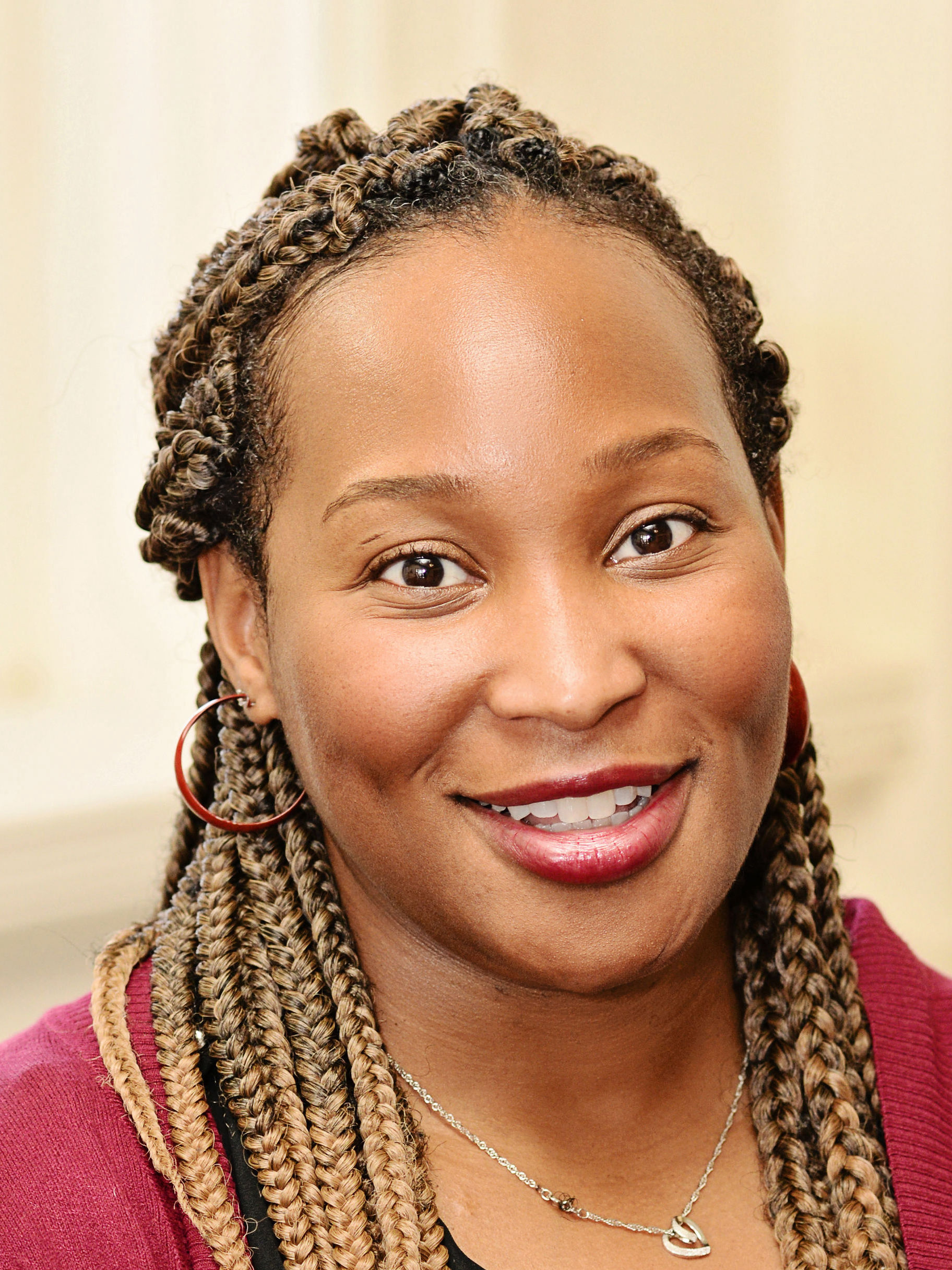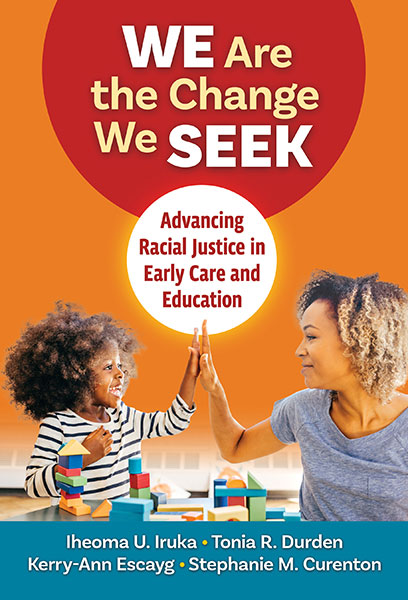 Iheoma U. Iruka is a research professor in public policy and the founding director of the Equity Research Action Coalition at the Frank Porter Graham Child Development Institute at The University of North Carolina at Chapel Hill.
Iheoma U. Iruka is a research professor in public policy and the founding director of the Equity Research Action Coalition at the Frank Porter Graham Child Development Institute at The University of North Carolina at Chapel Hill.
Tonia R. Durden is a clinical professor and birth through five program coordinator in the Department of Early Childhood and Elementary Education at Georgia State University. Kerry-Ann Escayg is an associate professor of teacher education at the University of Nebraska–Omaha. Stephanie M. Curenton is a professor and director of the Center on the Ecology of Early Development program at Boston University.
Together they are the authors of We Are the Change We Seek: Advancing Racial Justice in Early Care and Education.
What a pleasure it was for us coauthors to create a practical, hands-on resource to inspire and engage educators. The tools and frameworks outlined in our new book, We Are the Change We Seek, are the necessary steppingstones to building an educational ecosystem for the well-being of children, especially those from minoritized and poor communities.
We hope this book becomes a valuable tool to support the implementation of culturally grounded practices that will improve outcomes for diverse children in early childhood settings and systems. Our children deserve affirming and joyful spaces to learn and thrive in, and that begins with us—first in the classroom, and then as they grow, into the world beyond.
This Q&A with coauthor Iheoma U. Iruka describes the impact we hope this work will have on the early childhood education community.
What was the most meaningful part of coauthoring this book?
First, I am honored and humbled to have had an opportunity to write, create, and share our work, and for people to actually buy and read it. Secondly, I coauthored this book with three other amazing Black women who always speak truth to power in their personal and professional lives. When you can learn and stand with brilliant people who hold you and themselves accountable, it strengthens your lens and work.
What is one important takeaway from the book for early childhood educators?
The one important takeaway is that we know that many early childhood educators take their profession seriously, and we can’t thank them enough for being the education warriors they are—caring for and teaching children and being brain-builders. We hope one thing they take from the book is knowing they can make a change for themselves, their children, and their family.
How do you see the frameworks you’ve outlined in the book being used beyond the classroom?
As with previous books I have authored, I see the frameworks as tools that can go beyond the early education classroom and profession. The idea of being antibias, antiracist, and culturally responsive, for example, is not new, and it is not just for early educators. It is for all of us. It is for every sector, from child welfare, to criminal justice, to human services, for anyone who wants to ensure that systems are created to dismantle oppression and dehumanization and provide opportunities for all to thrive.
Why is being culturally responsive so important in the early childhood classroom?
We must remember that the early years are a sensitive period of human development, where everything from language and cognitive development to neurobiological development is underway. This period sets the foundation for many skills and competencies, from language and emotion regulation to identity development. Being culturally responsive, and furthermore, being antibias and antiracist, means that children can be treated as the unique and brilliant minds they are and not according to a preconceived notion based on their skin color, the way they sound, or where they live. Culturally responsive means that we can see, hear, and love our children completely for who they are and what they bring, and we create the space and the conditions for them to be brilliant and joyful.
How do you see classrooms changing in the future, with the help of books like yours?
We are seeing so much fear in educators, schools, and learning institutions who are just striving to do the right thing, brought about by an assortment of outside pressures from book bans to words you can’t say. We hope our book reminds readers that it is our moral and ethical obligation to protect our children from harm, to promote their well-being and access to educational excellence, and to preserve the best of who they are from their culture, language, heritage, and identity. This book helps readers to ask questions, query their knowledge, and activate their “third” ear. I hope this book helps classrooms, educators, and other professionals to look around them, to examine the practices and policies of their programs, schools, and organizations, and to ask whether they are doing right by all children or only by the privileged few. It is not good enough to know. . . one must act.
Happy educating!

We Are the Change We Seek
Advancing Racial Justice in Early Care and Education
Iheoma U. Iruka, Tonia R. Durden, Kerry-Ann Escayg, and Stephanie M. Curenton
Photo by Yan Krukau
